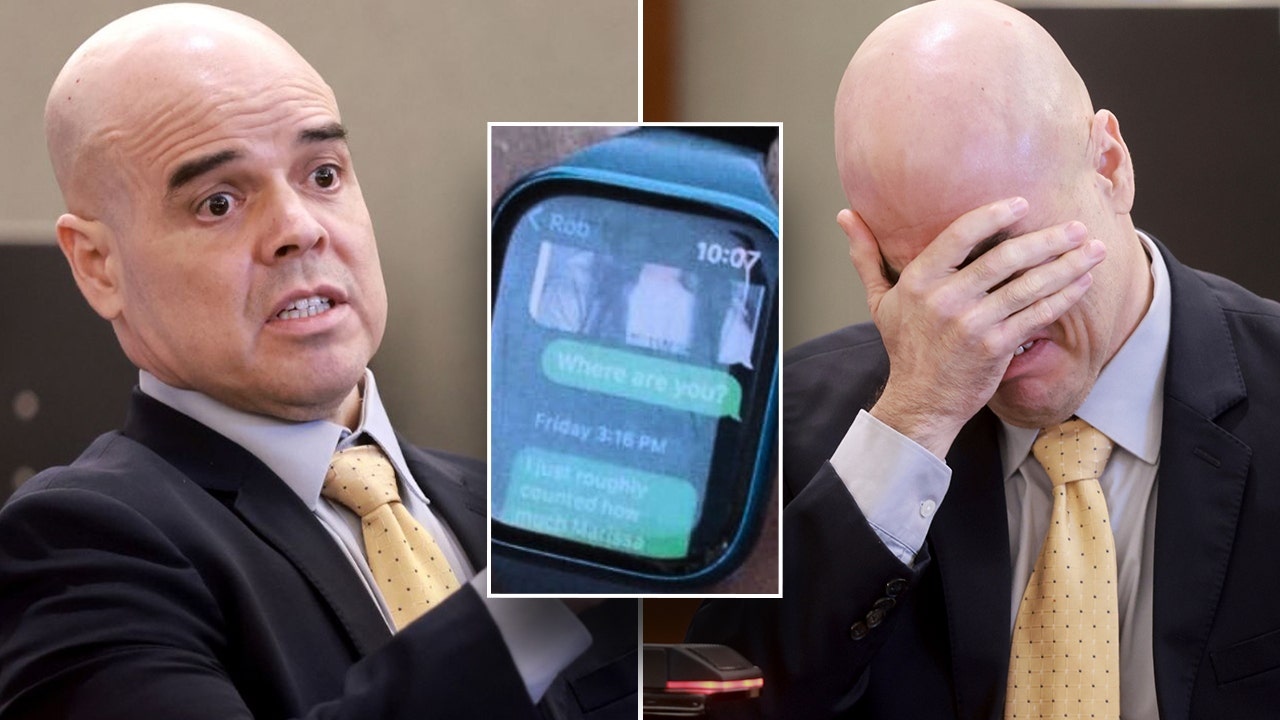When Nevadans aren’t happy with the economy and their families’ ability to prosper, they often vote to make a change. In the 2022 elections, I was the only candidate in the country to unseat an incumbent governor of either party. What I heard most on the campaign trail from voters then was the importance of building a stronger economy, particularly the need for good-paying jobs and lower taxes.
Kitchen-table politics are once again demonstrating power in Nevada, as polling shows former President Donald Trump with a sizable lead over President Biden. Nevadans continue to struggle under the weight of inflation, so it does not surprise me to see their frustrations manifest in support for changing our president.
When I took office, Nevada was grappling with the economic hangover of the pandemic. In the following months, we lowered our main business tax by 15 percent, vetoed tax increases, eliminated red tape through executive orders and empowered the Governor’s Office of Economic Development to create competitive incentive packages. The results: We generated $5 billion in new private-sector economic investment, led the nation in annual job growth and created thousands of new jobs in our state. The state has also used federal pandemic relief money to help fund some programs.
Yet many people here are still suffering from higher costs, largely as a result of the Biden administration’s failure to rein in national inflation. Since Mr. Biden took office, prices have risen 19 percent, a major factor in real average weekly earnings dropping 4 percent. This type of economic turmoil is simply unsustainable for Nevada families.
This is especially true when it comes to the cost of housing in Nevada. As I outlined in a recent letter to the president, the median home listing price in Las Vegas was $342,995 in January 2021, but by this year that price had skyrocketed to $460,000. With today’s high interest rates imposed by the Federal Reserve, prospective home buyers getting a Federal Housing Administration loan with a 3.5 percent down payment could expect the monthly cost for a median home in the Las Vegas area to be around $2,900 per month at the market interest rate of 6.71 percent — over twice the market interest rate and monthly cost in January 2021. The average salary in Nevada is $55,070, but Nevadans now need to make at least $111,557 to afford the monthly mortgage payment for the median home.
Further exacerbating our housing crisis, the Biden administration hasn’t released additional federal land for housing development in Nevada. The federal government controls more than 80 percent of the land in Nevada, and while Nevadans enjoy public access to much of this space throughout the state for things like recreation, agriculture and mining, the reality of this ownership surrounding the urban areas of the state is a limiting factor on the development of new housing options. The land available for development in Las Vegas is currently slated to run out by 2032.
I have been calling for new and speedier processes to transfer federal land in urban areas into state and private hands for attainable housing development for the past year, but the president has instead focused on further restricting the use of land in Nevada by unilaterally designating a national monument 500,000 acres in size — two and a half times the size of New York City, including all five boroughs.
As I wrote to Mr. Biden, if he released 50,000 acres around Las Vegas (the equivalent of 10 percent of his new national monument), this land would provide for the potential construction of up to 335,000 homes. While our state suffered from overbuilding during the financial crisis, our economy and population have grown exponentially since then, with Nevada becoming one of the fastest-growing states in the country.
Nevada, as a matter of history, was born from battle and forged by determination. From the desert, our state built a mecca of world-class hospitality and entertainment — Nevadans know what hard work looks like.
And Nevadans don’t expect things to be easy. But they expect a fair shake. An average Nevadan should be able to afford gas and groceries, purchase a home and plan for retirement, but too many residents are struggling to do so, which is leading some to support Mr. Trump’s candidacy. Congress’s Joint Economic Committee estimates that inflation is costing Nevadans an extra $1,199 per month to purchase the same goods and services as in January 2021. Since Mr. Biden took office, groceries are up 20.6 percent, rent is up 21.6 percent and gas is up 46.99 percent.
Many Nevadans believe that the nation’s economy would be better served with new leadership. They include 69 percent of young voters and 70 percent of Hispanic voters, who say they trust Mr. Trump to do a better job with the economy than Mr. Biden, according to a New York Times/Siena poll concluded last month.
As Gen Z graduates enter the work force and look to purchase their first homes, it’s no surprise that they are concerned about today’s punishingly high inflation and mortgage rates and are seeking an alternative to the status quo. My friend Peter Guzman, who leads the Latin Chamber of Commerce in Nevada, attributes this shift among Hispanics to their “choosing policies over personalities” in this fraught economic environment, and he’s right. Today’s pocketbook issues have transcended traditional voting blocs, allowing voters to evaluate how their vote impacts their wallet and vice versa.
As the 2024 election inches closer, candidates would be wise to consider the effect of their actions on voters’ everyday lives. If recent polling on Democratic candidates in Nevada is any indication, and I think it is, Mr. Biden has a big problem to overcome, because after three and a half years, Nevadans are losing confidence in him to do something meaningful about inflation and housing and are left with the feeling that he just doesn’t get it.






